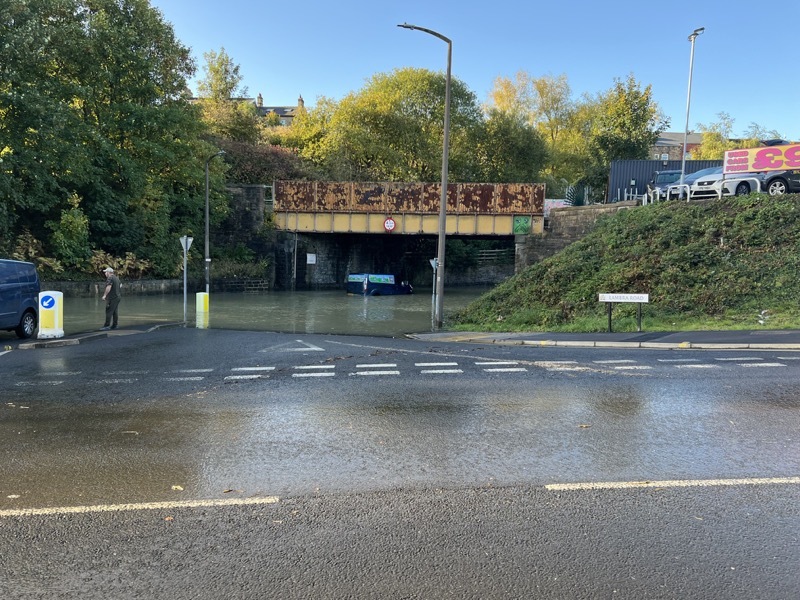A SEVERE water leak saw one van almost fully submerged in water on the outskirts of the town centre on Monday - and the road will remain closed until the surface has been re-laid.
Motorists were forced to drive through the flooded street - on Pontefract Road leading onto Lambra Road - with many having to take alternate routes to get into the town centre.
Lambra Road’s underpass was fully submerged, leaving one van stuck and up to its windscreen due to the leak.
A spokesperson for Yorkshire Water told the Chronicle leaks like this can happen occasionally.
“Our team is on site working to fix the burst main - the road will be closed until the surface is re-laid and it is safe to reopen,” the spokesperson added.
“Burst pipes can happen from time to time and are usually a result of a change in temperature, pressure or ground movement.
“At Yorkshire Water we have enough pipework to wrap around the world twice, we’re always keeping an eye on it and looking to minimise the risk of bursts and leaks where we can.”
The leak - which caused chaos for commuters on Monday morning - comes just months after Barnsley was chosen for a first of its kind trial to deliver high-speed broadband through the use of water pipes.
The new proposals to accelerate the rollout of broadband without digging up roads will see fibre-optic cables placed through 17km of drinking water mains between Barnsley and Penistone.
Around a fifth of all water put into public supply every year is wasted due to leaks in the UK - but with the current technology, the exact location of the leak is particularly hard to find.
The project, led by Yorkshire Water in partnership with Arcadis and the University of Strathclyde, will test solutions that reduce water leaks by placing sensors in the pipes.
Around 8,500 homes and businesses could then gain better access to the internet, if broadband companies tap into the network and deem the scheme feasible.
The ‘Fibre in Water’ scheme will show what could be a a greener and quicker way of connecting fibre optic cables to homes without the disruption caused by roadworks.
The network will also be used to set up 5G masts with the aim of bringing fast and reliable wireless broadband to the most hard-to-reach communities across the borough.
The technology that is being used has already been approved by the Drinking Water Inspectorate and has previously been deployed in other countries such as Spain, with the scheme working successfully.


























